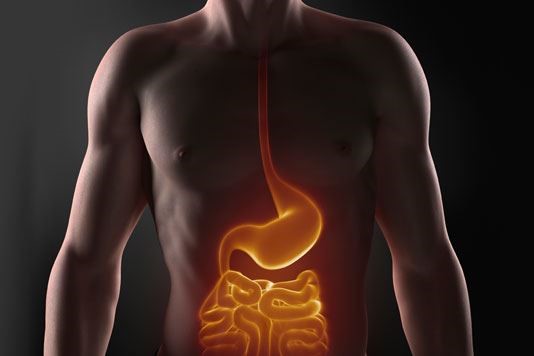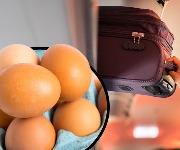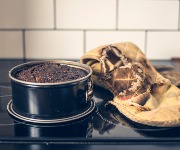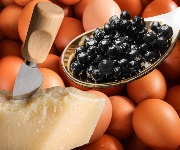Gut week: top tips to keep your stomach healthy

To celebrate Gut Week, Dr Nick Read, Medical Adviser to the IBS Network, shares his top tips on how to look after your digestive health.
Our research for Gut Week found that our eating habits have changed, evolving from hunter gatherers into ‘hunter grabbers’. A quarter (24%) of Brits don’t eat three square meals a day, instead grabbing snacks twice during the day and once after dinner, all of which could lead to problems with their digestion. Furthermore, according to our research over a third of people eat breakfast in front of the TV.
Foods to eat and avoid for IBS sufferers
Eating milder foods usually complements a sensitive gut as they tend not to react with it. The milder foods I would suggest are rice, chicken, potatoes, oats (porridge), courgettes, and green beans, which are all pretty safe in terms of gut health.
The worst foods for your gut are rich, fatty foods, including fry-ups, cheese, fatty cuts of red meat, sugary puddings, alcohol, and gassy foods. You may find that stone fruits and beans/lentils or cauliflower also upset your stomach.
Whether food upsets your gut or not is a very individual thing and depends on what the associations are and how you eat it. It is a good idea to start a food diary so you can see exactly what foods trigger the sensitivity in your gut.
What can people do to help aid digestion
Don’t eat fatty meals if you're in a hurry. Fat takes longer to digest than other nutrients and is more likely to induce pain and make you feel sick.
A glass of wine during a meal helps digestion; half a bottle makes it worse as it can irritate the stomach.
Avoid vigorous exercise straight after a meal as this can activate the sympathetic nervous system and impair digestion, although going for a gentle stroll can help your meal go down.
The best time of day to eat
It does depend on what you are doing and your lifestyle. But it's always important to have a healthy breakfast (cereal and fruit/toast and marmalade) before going to work, a light snack at lunch and an evening meal (not too rich) at about half past six. Don’t eat too late.
Are organic foods better for my digestive system?
As far as I'm aware, there is no sound evidence that organically grown foods are any better for your gut, but it's important to wash vegetables and fruits to get rid of any pesticide or herbicide residues.
The one piece of advice for IBS sufferers
Regulate your daily life, including your diet. Allocate sufficient time for work, exercise, relaxation and take time out to talk to your family and friends. Take everything in moderation and don’t overdo your life or your diet.
For more information please visit www.gutweek.org.uk where you can download a free advice pack.
Living with a food intolerance
Kitchen safety: top tips for handling and cooking chicken
Giving up caffeine and alcohol
Most Recent
Comments
Be the first to comment
Do you want to comment on this article? You need to be signed in for this feature








